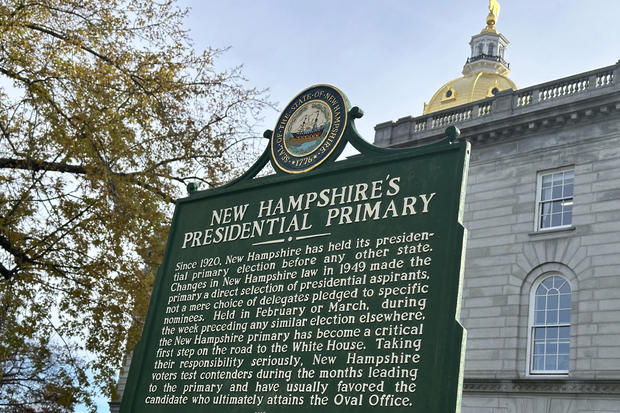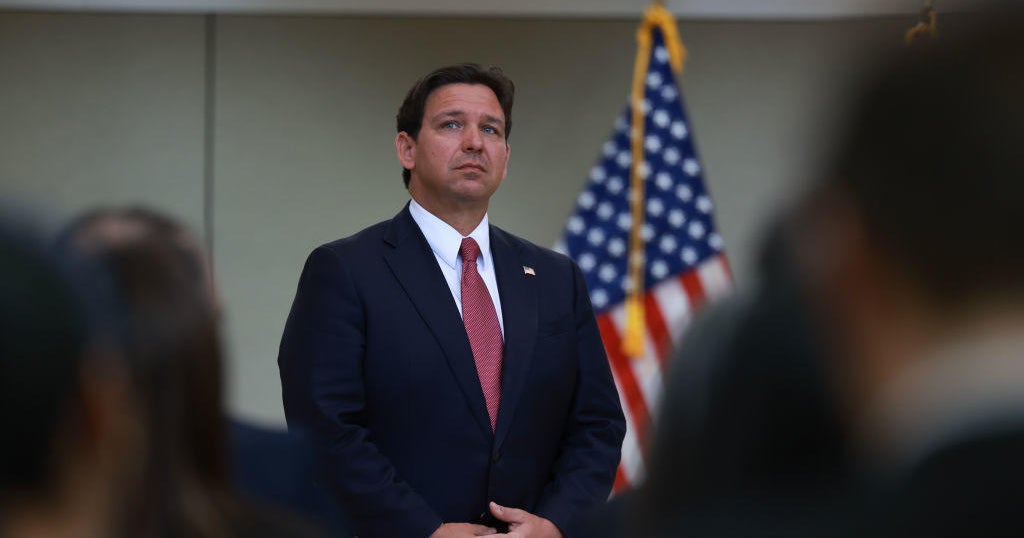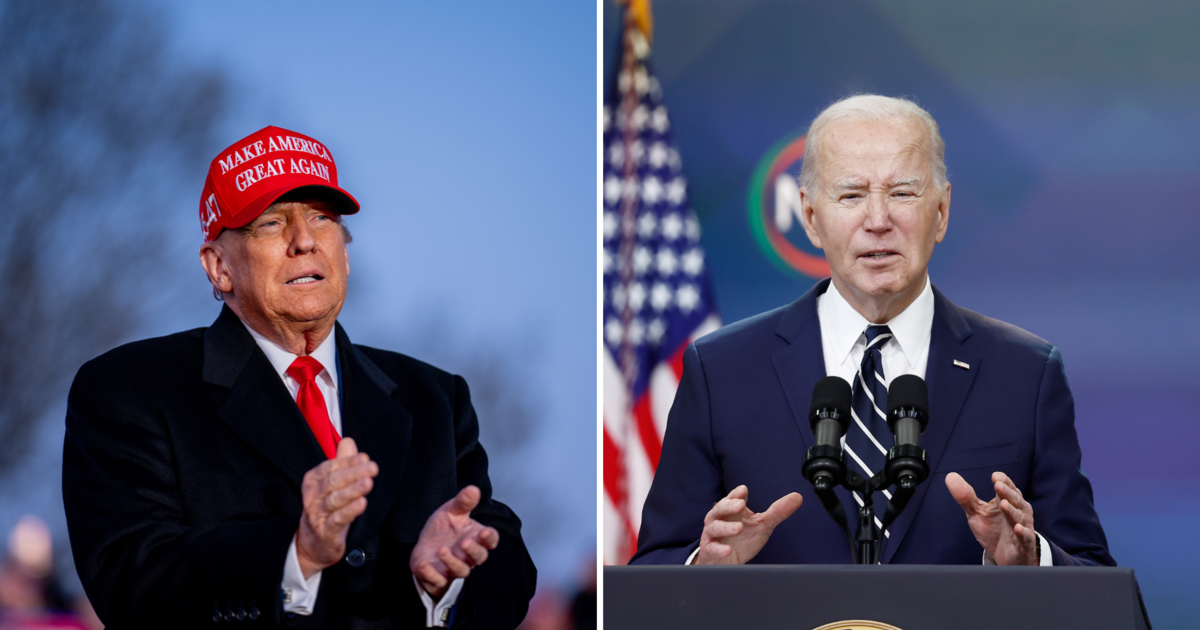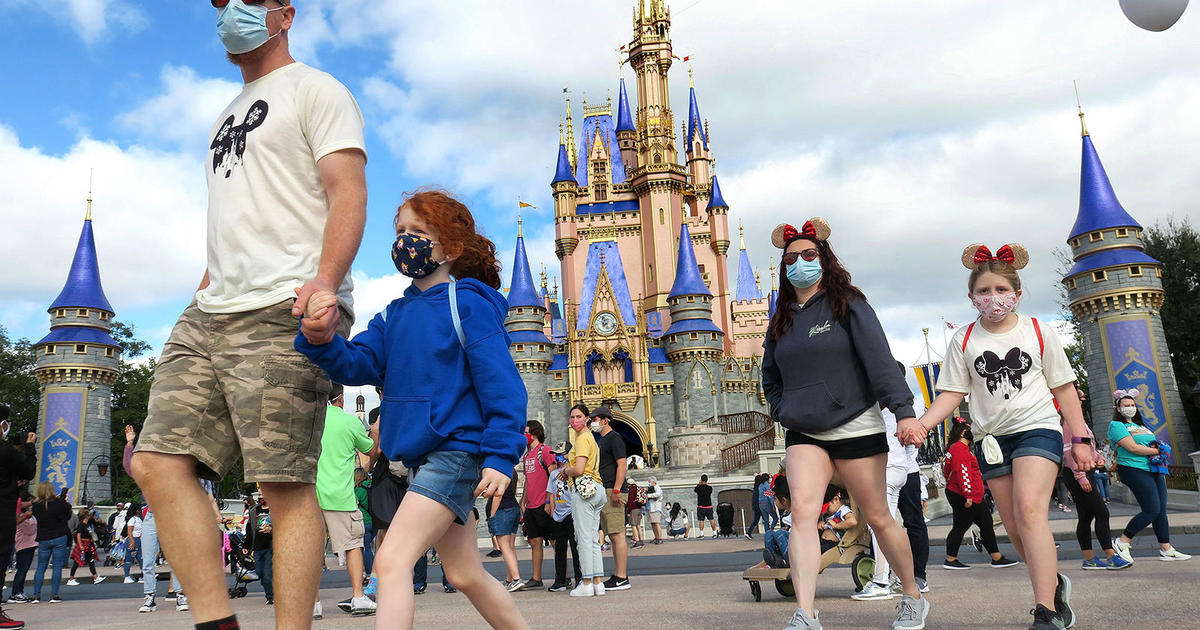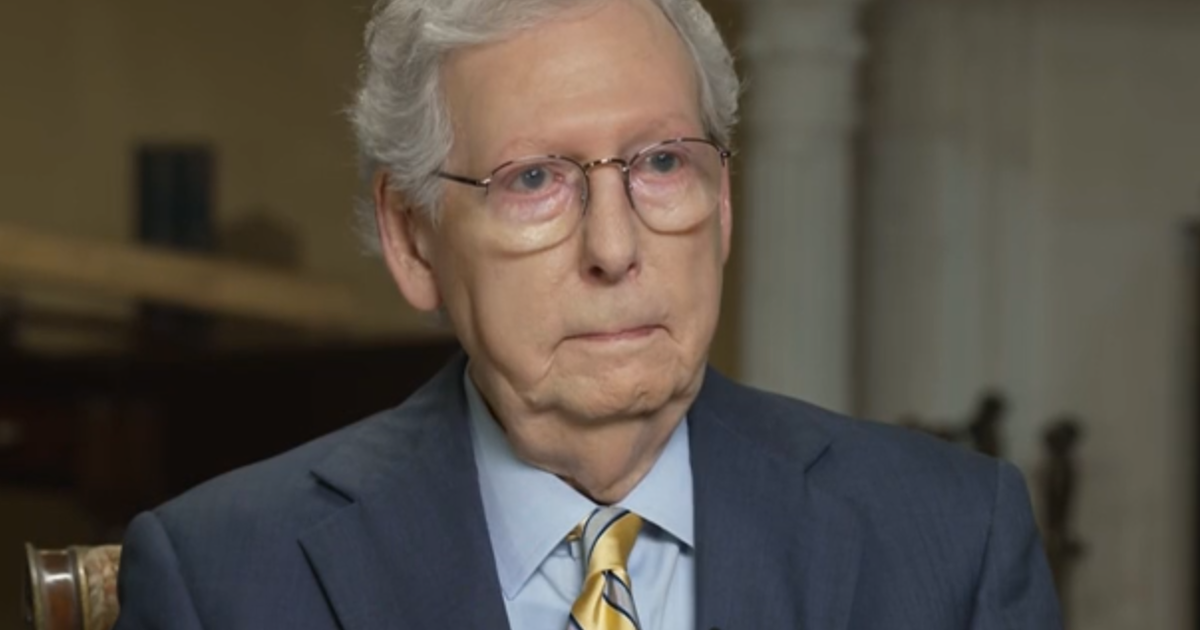Why the New Hampshire primary is first in the nation
The New Hampshire presidential primary is underway on Tuesday, just eight days after the Iowa caucuses, marking the first primary in the nominating process.
The Republican race is now narrowed down to two candidates: Former U.S. Ambassador to the U.N. Nikki Haley and former President Donald Trump, who won by a large margin in the Iowa caucuses. Florida Gov. Ron DeSantis dropped out of the race on Sunday night.
Twenty-two delegates are up for grabs in the Republican primary. Delegates will be allocated proportionally based on the statewide vote with a 10% threshold and even if a candidate doesn't win the state, they could potentially earn delegates.
Why is New Hampshire the first primary?
New Hampshire's position as the first primary contest is legally binding. The state has held first-in-the-nation primary status for more than a century, and a 1975 state law cemented its place on the calendar.
"The presidential primary election shall be held on the second Tuesday in March or on a date selected by the secretary of state which is 7 days or more immediately preceding the date on which any other state shall hold a similar election, whichever is earlier, of each year when a president of the United States is to be elected or the year previous," the law says.
But last year, the Democratic Party, supported by President Biden, announced it would be changing its primary calendar to prioritize South Carolina and move up battleground states such as Michigan and Georgia. New Hampshire's state government, controlled by Republicans, refused to comply with the DNC's new rules and scheduled the primary for Jan. 23, leaving it first.
As a result, Mr. Biden is not appearing on the ballot, although his campaign has launched an aggressive write-in campaign. Democratic candidates participating in the unofficial primary on Tuesday will not win any delegates, so any victory will be symbolic.
Republicans are carrying on as usual, and the state's 22 delegates will be allocated proportionally to the winners who meet the 10% threshold.
What are the first results out of New Hampshire?
New Hampshire has the first primary in the nation and the first votes in the state are cast in Dixville Notch, a tiny town in the state's North Country. All six votes were cast for Haley.
"A great start to a great day in New Hampshire," Haley said after the votes were counted. "Thank you, Dixville Notch!"
Ahead of the Dixville Notch victory, Haley told "CBS Evening News" anchor Norah O'Donnell on Monday that the election is not decided by the early states alone.
"You had only 56,000 votes in Iowa for him out of 3 million people in the state," Haley said. "He got less than one and a half percent of the state of Iowa. And then you're going to say, 'It's going to stop with New Hampshire'? This is not a coronation. This is an election. You have Iowa, you have New Hampshire, you have South Carolina, you have Super Tuesday. You can't just have one or two states decide this. You've got to allow a lot of the country to decide this."
What are polls saying about the New Hampshire primary?
In a CBS News poll released in December, Trump led with 44% of support. On his heels in the Granite State is Haley, who polled at 29%. Her rising popularity in New Hampshire can be attributed, at least in part, to the growing support from moderate and independent voters who appreciate that her personality is the opposite of Trump's
Now that Chris Christie, the former New Jersey governor, is out of the race. He was polling at 10% before bowing out, and some New Hampshire voters are thinking his supporters might switch to Haley.
"I don't think that's unrealistic. I do think there are Democrats that are going to veer toward Haley. I do. Certainly, there are Republicans that are learning about Haley for that specific reason, for what they're going to vote for. Everybody has to vote their conscience. I think Nikki Haley presents herself so well," said Mary Ellen Molyneaux, 68, a retiree living in New Hampshire. She is a Democrat considering a switch to independent and contemplating voting Republican this year.
New Hampshire has an "open" primary, meaning that voters who are not declared with either party can vote in the primary.
DeSantis was polling at 11% behind Haley in the last CBS News poll, yet Haley has declared the battle for the GOP nomination a "two-person race," prompting a shift in her campaign strategy to exclusively target defeating Trump.
Meanwhile, Make America Great Again Inc., a political action committee that supports Trump, started airing campaign ads earlier this month, calling Haley "too liberal" and "too weak."
How well does New Hampshire predict the outcome of the election year?
While the contest can show how well a candidate's messages and resources are resonating with votes, the primary winner does not always go on to be the party nominee.
Mr. Trump won the New Hampshire GOP primary in 2016, but with a more moderate slate of Republicans and many independent voters, Haley could see a bolster in support.
New Hampshire Republicans seem to have a better track record compared to their Democratic counterparts. Since 1976, the state has supported five candidates who eventually secured their party's nomination in seven contests.
But just two of these candidates, Ronald Reagan and George H.W. Bush, went on to become president.
On the Democratic side, New Hampshire voters have favored five eventual nominees out of eight contests, but only one of them, Jimmy Carter in 1976, secured the presidency.
Former President Bill Clinton earned recognition for his second-place finish in the Granite State in 1992. Despite this loss, he made history as the first candidate in the last 40 years to win the presidency after losing both Iowa and New Hampshire. Mr. Biden, meanwhile, came in fifth in New Hampshire but went to win South Carolina and then the nomination.
How does the New Hampshire primary work?
New Hampshire has an open primary system that allows for independents, or people known as "undeclared" voters, who make up more than 39% percent of registered voters in the state, to cast a vote for either Democratic or Republican candidates on primary day.
Democrats are also allowed to switch to undeclared and participate in the Republican primary, but the deadline to do so was Oct. 6.
According to the New Hampshire secretary of state's office, more than 3,500 Democrats switched to undeclared and roughly 400 switched to the Republican Party.
What are New Hampshirites saying?
With 400 representatives in the state legislature, some 250 odd towns and a plethora of local committees, "it is statistically correct that over your lifetime either you, your spouse, or one of your neighbors on either side has run for office," said former New Hampshire Gov. John Sununu.
And because New Hampshire voters are so politically involved, Sununu added, "I think the most important single ingredient is to be genuine. New Hampshire voters can crack through the facade of phoniness."
Paige Leary, a 55-year-old Michigan native who moved to New Hampshire a year ago, said she appreciates how involved New Hampshire voters are in the political scene.
"I mean how many people get a chance to talk to a candidate, even if it's for a second or even to hear them in a room? Having been, like I said, been in Michigan my whole life, I've gone to different political events. People are really invested in New Hampshire in terms of finding out and pushing the candidates too, like, what are you really going to do? So, I think it's unique," Leary said.
Micah D. Weiss, 47, an independent voter from New York who moved to New Hampshire 10 years ago, said he thinks New Hampshire more closely resembles the rest of the U.S. than Iowa.
"I think it's a little bit more representative of America as a whole," Weiss said. "It's not quite a purple state. It's gone Democrat the last few presidential elections. But you know, fewer and fewer Americans are identifying as members of a political party and more and more identifying as identity independents and I think that there is just a strong independent cohort here in New Hampshire. So I think that that makes it a little bit more representative of the United States than Iowa, which is, you know, a great state, but it's very conservative. It's very evangelical Christian."
Hunter Woodall, Jake Rosen and Jennifer De Pinto contributed to this report.
